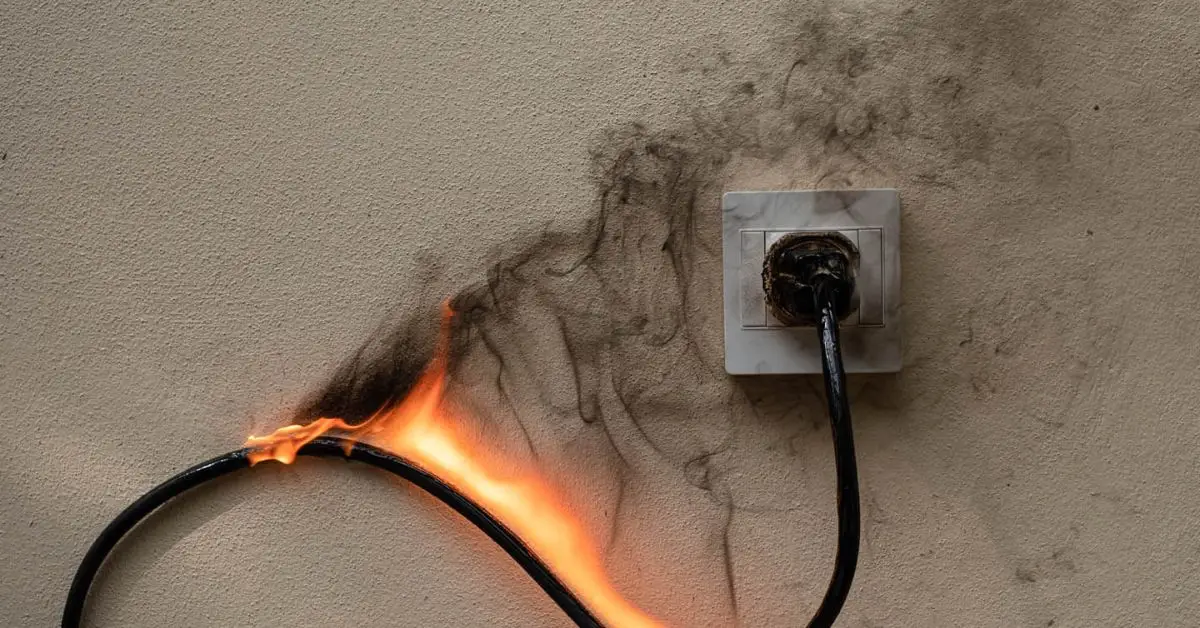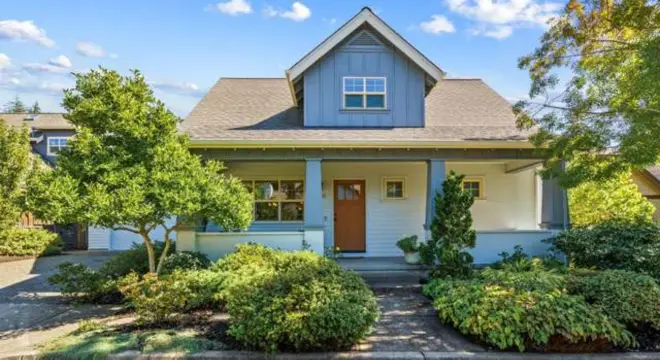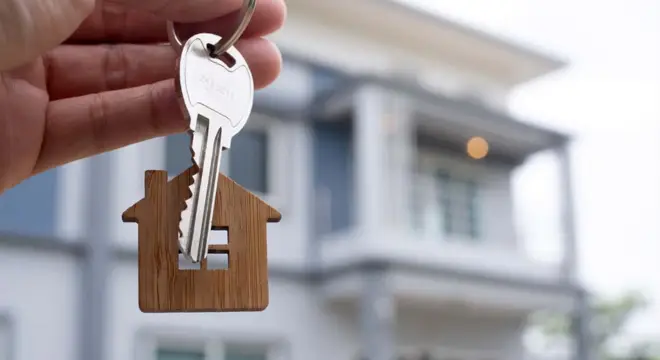What Most Buyers Miss When Talking to Real Estate Agents
If you’re buying a home, chances are you’ve Googled “questions to ask a real estate agent.” That’s a smart move—but here’s the problem: almost every list gives you the same old recycled tips.
- “Ask about their experience.”
- “Check if they’re full-time.”
- “Get their commission structure.”
Sure, those are important—but they’re basic. Every agent is prepared for them. They’ve got polished answers. What they’re not ready for is when you ask smarter, sharper questions. The kind that reveal how they really work under pressure, how honest they are, and whether they’re the right fit for you.
I’ve worked in this space for two decades, and let me tell you: it’s not the answers to the obvious questions that protect buyers—it’s the ones they don’t know they can ask.
That’s what this guide is about.
Not ten generic questions.
But ten unexpected, overlooked, and game-changing questions that will help you find an agent who’s more than just “good on paper.”
Let’s get into it.
1. Ask Them About Their Worst Client Experience
I know—it sounds odd. But if you really want to understand how a real estate agent handles pressure, conflict, and curveballs, ask them this:
“Can you tell me about your most difficult client and how you dealt with the situation?”
Why does this matter?
Because anyone can look good on paper. Online reviews are filtered. Even the polished website testimonials won’t tell you how an agent behaves when things go sideways—like a deal falling through, a tough seller, or a miscommunication with the lender.
This question pushes them off script. Their answer will show you:
- Whether they take responsibility or blame others
- How they manage emotions under stress
- What kind of buyers they don’t work well with (which might be you)
- How transparent and real they’re willing to be with you
When I was buying my first place, I asked this and immediately knew who I didn’t want to work with. One agent brushed it off with, “I’ve never had a problem,” which sounded fake. The other gave me a real story—and explained what they learned from it. That’s who I hired.
Takeaway: You’re not just buying a house—you’re choosing a teammate. And the wrong one can cost you more than money.
What would you do if your agent got defensive when asked this?
Drop it in the comments—I’d love to hear.
2. “Would You Buy This House Yourself—And Why?”

Most buyers ask, “Is this a good deal?” or “What do you think of this home?”
But here’s a better version:
“Would you buy this house yourself—at this price, in this condition, in this market?”
This question flips the script. It pushes the agent to stop selling and start thinking like a buyer. Their answer will show you:
- How honest they’re willing to be
- What risks they see but might not say out loud
- Whether they’re just trying to close quickly—or actually care about your investment
If they hesitate or dance around the question, that’s a red flag. A good agent won’t sugarcoat the flaws. They’ll tell you what they like, what they’d worry about, and what they’d negotiate hard on—as if it were their own money on the line.
I’ve seen buyers avoid major mistakes just by asking this one thing. Because suddenly the agent stops spinning, and starts thinking critically. That’s when the real insight comes out.
Tip: Ask this early, and watch how their tone changes. Are they still selling—or advising?
3. “What Issues Are Common in This Area?”
Buying a home isn’t just about the property—it’s about where it sits. Every area has quirks, and most of them don’t show up in listings.
I’ve worked with agents who knew that a certain neighborhood had drainage issues every monsoon. Another knew the school boundaries were about to shift. That kind of local intel? You won’t find it online.
So ask them straight:
- “What’s something people regret not asking about this area?”
- “What do residents complain about most?”
You’re not looking for gossip—you’re looking for the stuff that doesn’t show up on a walk-through. Like:
- Noise from the nearby flyover
- Hard water problems
- Low resale demand due to parking or traffic
- Or new commercial zoning that could change everything
Reddit is full of stories from people who bought a great house but missed these local red flags. Don’t be one of them. A good agent should warn you—before you fall for the view or the granite counters.
Bottom line: You’re not just buying a home. You’re buying into a micro-community. Know what you’re walking into.
4. “How Are You Navigating This Market Right Now?”

Real estate doesn’t sit still. Rates go up, demand cools down, inventory dries up—then flips again.
That’s why it’s not enough to ask, “How long have you been an agent?”
Experience is fine. But what really matters is this:
“How are you adapting to the current market?”
Are they chasing every listing the same way they did two years ago? Or have they adjusted how they find off-market homes, time offers, or structure deals to stay competitive?
This question gives you a peek into how sharp and relevant they are right now—not five years ago. A solid agent will talk about:
- Shifting buyer psychology
- How rising rates are changing seller expectations
- Creative strategies for getting offers accepted (like escalation clauses or personalized letters)
- When to hold back—and when to move fast
During the 2022–2023 interest rate jumps, I saw two types of agents:
Those who complained about the slowdown, and those who shifted gears and found new ways to work deals.
You want the second kind.
Ask yourself: Are they responding to today—or relying on yesterday?
5. “What’s Your Availability Like—Realistically?”
It’s a simple question. But the answer can make or break your experience.
A lot of buyers assume agents are available 24/7. The reality? Many juggle multiple clients, kids, or even other jobs.
So don’t wait until your dream home hits the market on a Friday night to realize your agent’s gone for the weekend.
Ask upfront:
- “When are you usually available to show homes or take calls?”
- “How do you handle last-minute listings?”
You’ll quickly learn how they manage their time—and how responsive they really are. A strong agent will:
- Be honest about their schedule
- Have backup support if they’re unavailable
- Use tools (like automated alerts or shared calendars) to stay on top of new listings
This doesn’t mean they need to be on-call 24 hours a day. But it does mean they should respect your urgency—especially in fast-moving markets.
I’ve seen buyers lose out simply because their agent didn’t reply fast enough. Don’t let that be you.
Pro tip: Set expectations on both sides early. Good communication starts before the first showing.
6. “What’s the Property’s History—and What’s the Resale Outlook?”
I’ve seen buyers skip these checks and regret it later—especially when they ignore deal history or early warning signs. Many fall into the same traps covered in 8 home buying/selling mistakes most people overlook.
A home can look perfect today and still be a terrible investment long-term. That’s why you need to dig deeper than just the square footage and finishes.
Ask:
- “How long has this property been on the market?”
- “Has the price dropped?”
- “What do you see in terms of resale value in the next 5–10 years?”
An experienced agent should be able to tell you if the home is priced right, how long similar homes are staying on the market, and whether this area is trending up—or starting to slow down.
This is where you separate the “tour guide” agents from the strategic ones. A sharp agent will know:
- How this home compares to nearby comps
- If the seller is likely to budge on price
- What kind of buyer demand you can expect when you sell down the line
In one deal I watched, a buyer skipped this question—and found out later that the home had been listed (and pulled off market) three times before. Bad resale history killed their appreciation.
Don’t just think like a buyer. Think like a future seller.
7. “Any Known Issues with the House Systems or Utilities?”

Most buyers walk through a home focused on layout, paint color, or closet space. But the stuff that’ll actually cost you? It’s under the floorboards, behind the walls, and on the roof.
So ask them directly:
- “What do you know about the condition of the plumbing, electrical, roof, HVAC, and drainage?”
- “Any history of mold, pest, or water issues?”
If your agent shrugs or says “that’s for the inspector,” be careful. A good buyer’s agent should already be trained to spot early red flags—and push the listing agent for real answers.
In certain areas, common local issues pop up again and again:
- Older wiring that can’t handle modern appliances
- Water pressure problems in top-floor units
- Septic systems that haven’t been serviced in years
- Uninsulated pipes in regions with harsh winters
Even broadband quality matters in some neighborhoods—especially if you work from home.
These aren’t cosmetic concerns. They’re deal-breakers if ignored.
And they don’t always show up in a basic inspection report unless you know what to ask for.
You’re not just buying a home—you’re buying all the hidden systems inside it. Know what you’re getting.
8. “What Should I Expect from the Inspection—and What Do You Usually Flag?”
Home inspections can be overwhelming. You get a thick report, pages of photos, and a long list of things “to monitor.” But here’s the truth: what matters isn’t how long the list is—it’s what your agent does with it.
So ask them:
- “What kinds of issues do you personally look out for during inspections?”
- “How do you help buyers negotiate repairs or credits?”
A smart agent doesn’t wait for a report to point out concerns. They’ve been in enough homes to know what soft floors, water stains, or sloped patios might mean. More importantly, they know:
- What’s normal wear-and-tear vs. a big red flag
- How to bring up issues with the seller strategically
- When to walk away—even if you’re already emotionally invested
In one case I was tracking, the inspector missed a minor roof leak—but the agent noticed fresh ceiling paint and pushed for a second opinion. That saved the buyer thousands.
Point is: a great agent doesn’t just show up for inspection day. They partner with you before, during, and after to make sure you’re not buying someone else’s problem.
Ask this before you even make an offer.
9. “Do You Use a CMA or BPO—and Why Does That Matter?”
Most buyers have no idea how price is actually determined. They trust the listing. Or Zillow. Or vibes.
But smart buyers ask:
“Do you use a CMA (Comparative Market Analysis), a BPO (Broker Price Opinion), or both? And how do you decide what offer makes sense?”
Here’s why that matters:
- A CMA compares similar homes sold recently—your agent should run this before you even think about bidding
- A BPO is a more formal, often bank-used evaluation—it’s more detailed and helps when price feels inflated or off-market
If your agent just shrugs and says, “We’ll go with what the seller wants,” that’s not good enough. This is where your money’s on the line.
You want someone who’s pulling real data, watching trends, and thinking like an analyst. They should explain:
- What other buyers paid nearby (and why)
- If you’re overpaying for cosmetic upgrades
- How location, layout, and time on market affect fair price
This one question can uncover whether your agent is working off gut—or grounded data.
Bottom line: Emotions shouldn’t write the offer. Math should.
10. “What’s Your Offer Strategy—and How Do You Handle Negotiations?”
Too many buyers assume that once they find the house, the rest just “works out.” It doesn’t.
The way your agent frames the offer can either protect you or trap you. Before signing anything, you should know which documents truly matter—and which ones you should never sign.
What you offer—and how your agent frames it—can be the difference between winning the home or losing it to someone faster or smarter.
So ask:
- “How do you decide what kind of offer to make in this market?”
- “What’s your typical negotiation approach?”
Watch how they answer. A solid agent won’t just talk about numbers—they’ll talk about strategy. That includes:
- Whether to start below asking or go strong from the start
- How they build rapport with the seller’s agent (yes, this matters)
- What contingencies they recommend to protect you without scaring off the seller
- If they’ve used tactics like escalation clauses, early inspections, or seller rent-backs
In a hot market, being the first to write isn’t enough—you need to write the offer that wins.
And in a slower market, you don’t want to overpay just because you’re emotionally hooked.
Good agents treat offers like chess, not checkers. And they should walk you through their moves—not just ask, “How much do you want to offer?”
If they can’t explain their plan, they probably don’t have one.
11. “Have You Helped Remote or Out-of-Area Buyers Before?”
Buying remotely? Or relocating from a different city or country? Then this question becomes essential.
You’re not just trusting an agent to find a home—you’re trusting them to be your eyes, ears, and judgment on the ground.
So ask:
“Have you worked with buyers who weren’t physically present? How did you help them feel confident?”
This is about more than virtual tours. A good agent should talk about:
- How they preview properties before showing them to you
- What kind of photos/videos they provide (raw, unedited—not just the listing ones)
- Whether they’ll attend the inspection on your behalf
- How they handle remote closings, notary coordination, and last-minute surprises
I’ve seen remote buyers land great deals—but only when their agents went beyond FaceTime.
The weak ones just emailed listings. The good ones flagged traffic noise, musty basements, or “weird vibes” a buyer can’t see online.
And if you’re a student buyer or relocating while in school, there are added risks—especially the ones no one tells you about.
When you can’t be there in person, your agent becomes your filter. Make sure they’re built for that.
12. “Is There Anything You’re Not Telling Me?”
This is the one question most buyers are afraid to ask. But it’s the one that often reveals the most.
Say it clearly:
“If you weren’t legally limited—what would you really want me to know about this house, this seller, or this neighborhood?”
You’re not asking them to break rules. You’re asking them to be honest, even if it’s uncomfortable. A good agent won’t dodge this. They might tell you:
- The seller’s motivation (or desperation)
- Why a house has been on the market too long
- That the next-door neighbor has five dogs and a garage band
- Or that the HOA has stricter rules than you’d expect
Most agents will never volunteer this kind of info—unless you give them a door to walk through.
This question is that door.
And if they get cagey? That’s an answer too.
Remember: you’re not just buying walls and windows. You’re buying into a community, a block, a life. The surprises come after closing—unless you ask the hard questions now.
One honest moment can save you months of regret.
Final Thought: Ask Smarter, Buy Smarter
If you made it this far, you’re already ahead of most buyers. You’re not just going through the motions—you’re thinking deeper, asking sharper, and protecting your future.
And that’s the whole point.
Real estate is filled with noise. But these 12 questions cut through it. They tell you who your agent really is, what they’re hiding, and whether they’re prepared to have your back when it matters.
One last thing:
Which of these questions do you wish you’d asked sooner—or wish you had the guts to ask now?
I’d love to hear. Let’s talk.
Want more no-fluff advice on buying smarter and avoiding costly mistakes?
Visit Build Like New — we break down real estate with clarity, strategy, and zero sales talk.
Explore more guides, checklists, and insider tips built for serious homebuyers who want to do it right the first time.
Disclaimer: This article is for informational purposes only and does not constitute legal, financial, or real estate advice. Always consult with licensed professionals before making any property decisions.


